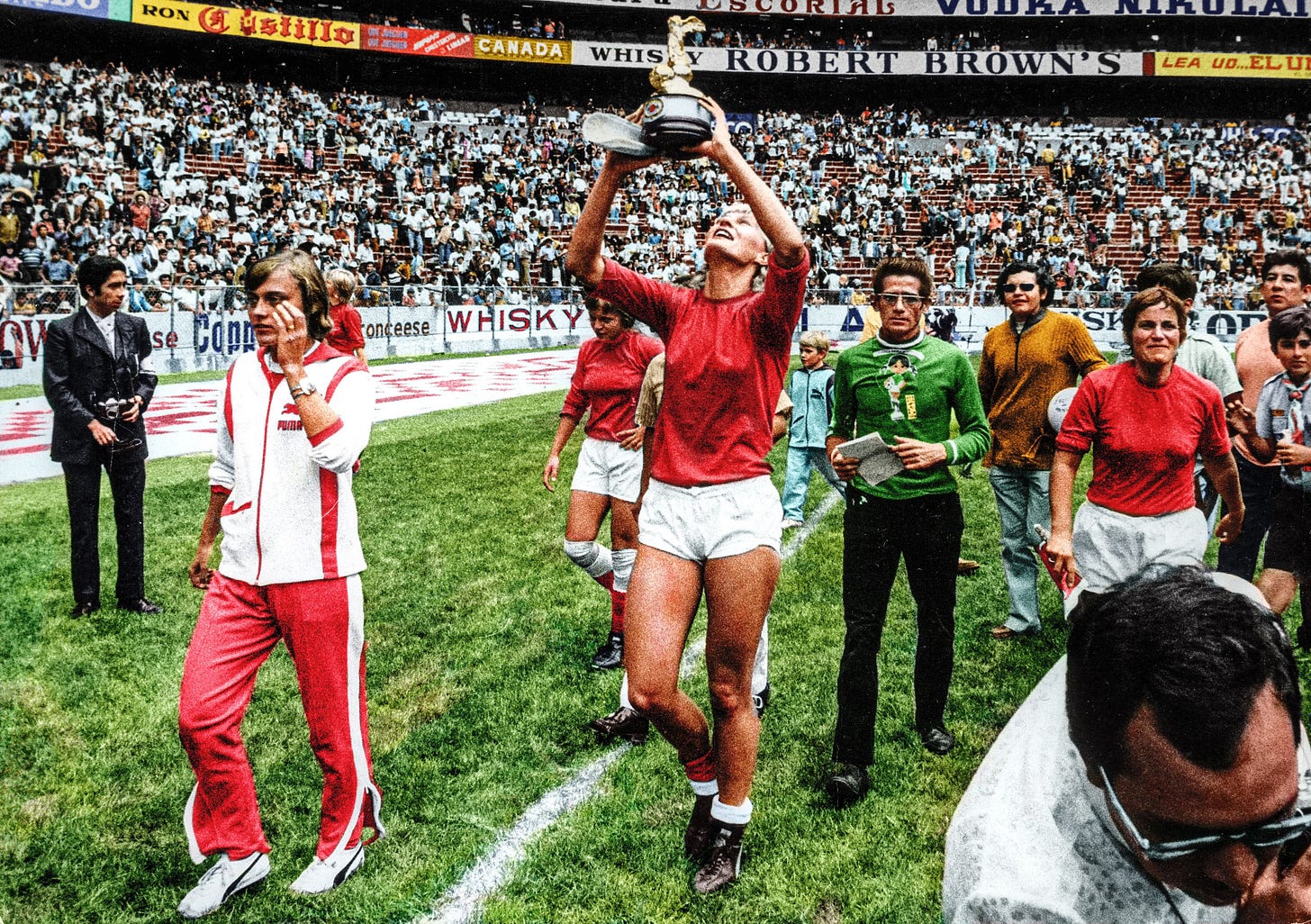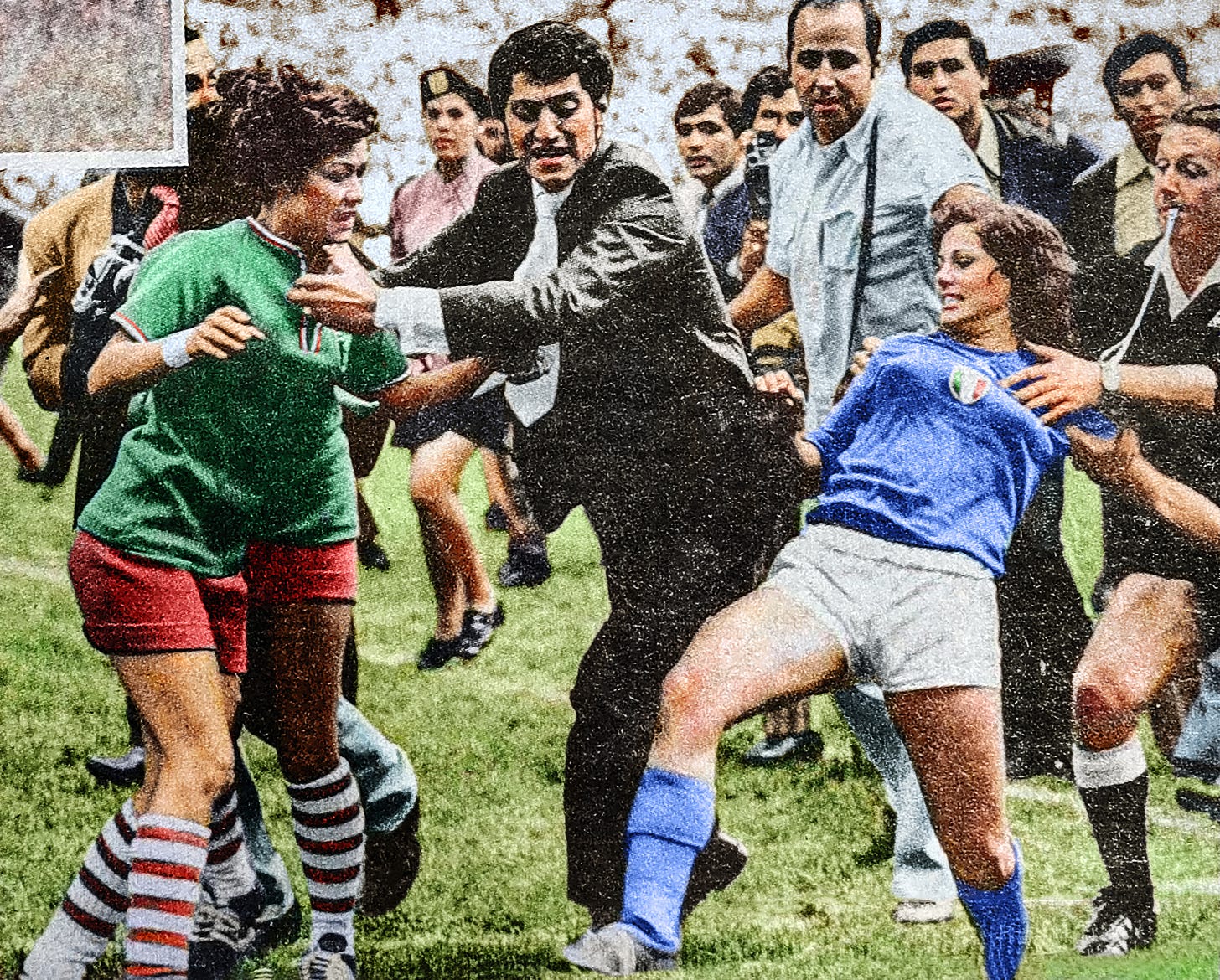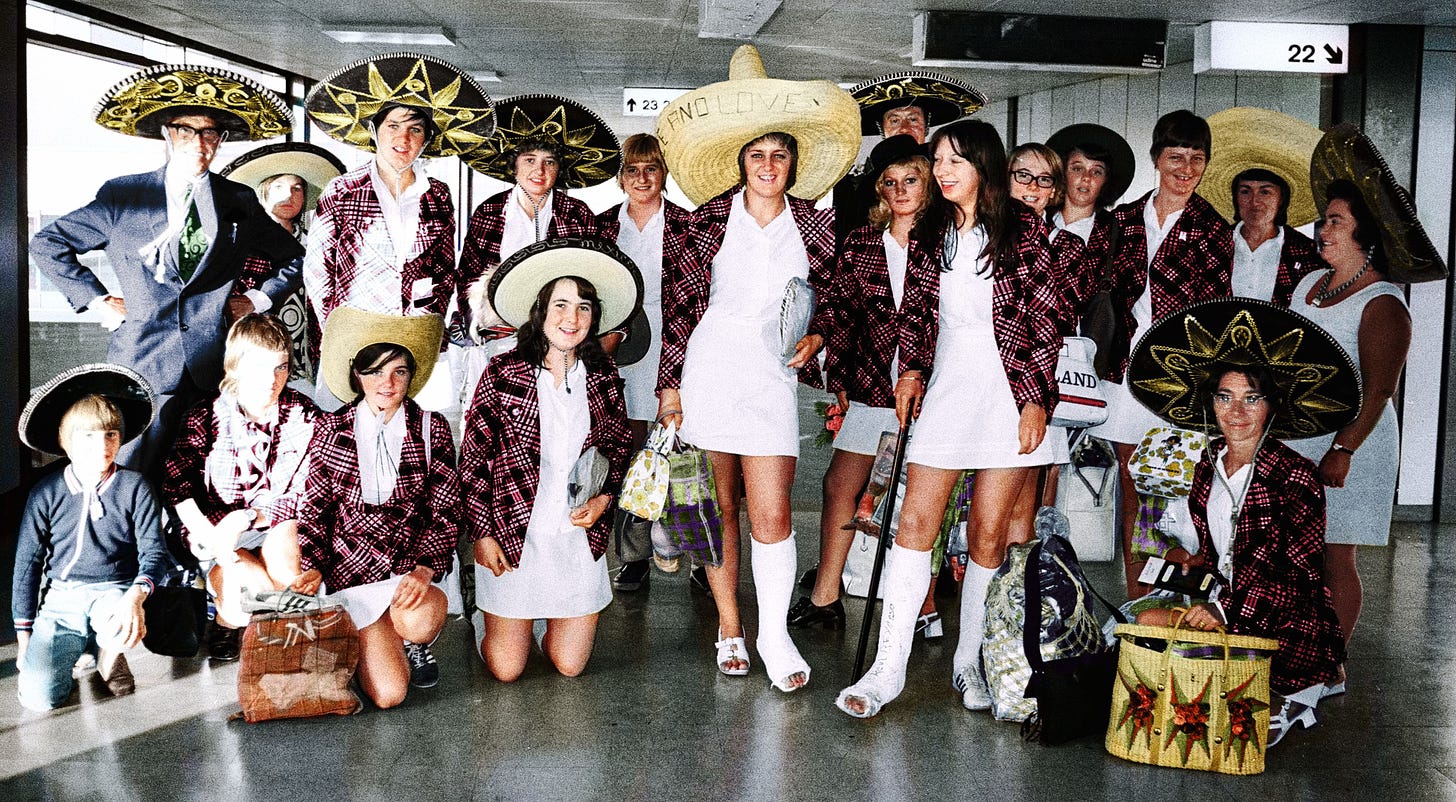Documentary scores with a forgotten tale of women’s soccer
“Copa 71” rescues the story of a popular women's World Cup from the dustbin of history

There’s a phrase I find myself using a lot these days:
That is so unbelievable that I totally believe it.
Usually, it’s about some crazy story in the news as things just get nuttier with each passing year. Yet it’s also something easily said about any number of topics in women’s sports for the past, oh, 100 years or so.
The latest comes in the form of a film, a tremendous new documentary called “Copa 71.” It’s about an unofficial women’s World Cup held in front of more than 100,000 screaming fans in Mexico City in 1971.
You didn’t know about that? You’re not alone. In the film’s opening minutes, a clip of the tournament is shown to 1999 Women’s World Cup star Brandi Chastain, who says, “Why didn’t I know about this?”
Join the club.
“Copa 71” opens Friday (Aug. 16) at the Varsity Cinema in Des Moines after its festival circuit run earlier in the year. It is also available to stream on Amazon’s Prime Video.
Women who wanted to play a sport but got grief about it? Believable. People packing a stadium to see female athletes? Believable. Female athletes’ success ignored over decades? Believable. Women’s attempts to play sports met with resistance from and shut down by the male powers that be? Oh yeah, totally believable.
Yet there’s no denying this occurred, even if it took more than 50 years to tell the tale again.
Filmmakers Rachel Ramsay and James Erskine give the story its due and then some. Not only did they, seemingly miraculously, find footage of the event but they pulled in many of the players to share their perspectives. Also on board as executive producers were tennis star Serena Williams and soccer star Alex Morgan.

Mexico hosted the men’s World Cup in 1970, and a group of Italian entrepreneurs wanted to follow up with a women’s tournament. They had hosted a women’s tournament in Italy the year before and wanted to do it again. Once they found a sponsor, beverage company Martini & Rossi, the event was a go.
One twist, though: When FIFA, the international governing body of football (soccer), found out about it, it blocked the use of any of its affiliated stadiums. So organizers in Mexico did a nutmeg and decided to hold the matches in two stadiums owned by a media company. Tournament organizers and the media company marketed the heck out of the games to fill seats, particularly, in Mexico City’s massive 100,000-seat Azteca Stadium.
By the time teams flew in (paid for by the sponsor) from Argentina, Denmark, England, France and Italy along with host nation Mexico, all that publicity had turned the women into rock stars. It was light years away from the football they’d always known. Most were anomalies in their world, growing up thinking they were the only girls who loved football and all they wanted was a chance to play, too.
There are stories like those of Silvia Zaragoza of Mexico, who played in secret because her father would punish her if he found out. And Elena Schiavo of Italy, who wanted to play with the boys when she was a kid, but they wouldn’t let her.
“What did I do?” she says in the film. “I beat them up.”
I loved these badass women with all my heart before the film was 10 minutes old.
Their joy and pride fly off the screen as they talk about getting kits (uniforms) and equipment from the tournament sponsor, some getting this stuff for the first time in their lives. Matches were televised – complete with a call of “GOOOOOAAAAALLLLL” when someone scored – and covered heavily in the press.
Sadly, it wasn’t to last. After the tournament was over, football officials banded together to protect their turf. The players returned to a world where they were nobodies – banned from the game they loved for playing in an unsanctioned event, mocked by the public and made to be embarrassed by what they had achieved. As they live through that again while telling the tale, you see the former players deflate like a beach ball poked with a pencil.

Historian David Goldblatt sums up football officials’ reaction to the women’s World Cup through a 21st century lens: “They reacted like all wounded men – negative, violent and aggressive. It’s about authority. It’s about who’s the boss. It’s a gender issue and it’s a control issue.”
The first official Women’s World Cup was held in 1991. Eight years later, the U.S. won it before huge home crowds. FIFA is now the governing body for women’s soccer/football. The next Women’s World Cup is in Brazil in 2027.
But it was all there in 1971, too, with a women’s World Cup that no official body recognizes and few remember. “Copa 71” provides the save these players, and their achievements, deserve.
“Copa 71” opens Friday, Aug. 16, at the Varsity Cinema, 1207 25th St. in Des Moines. Showtimes vary, check the theater’s website for details. It is also available to stream for a fee on Amazon’s Prime Video.
Watch the film’s trailer here.
Jane Burns is a former sports and features writer for the Des Moines Register, as well as other publications and websites. She’s a past winner of the Women’s Basketball Coaches Association’s Mel Greenberg Award for her coverage of women’s basketball. Over the course of her career she’s covered pretty much everything, which is why her as-yet-to-be-written memoir will be called “Cheese and Basketball: Stories From a Reporter Who Has Covered Everything.”
I’m happy to join fellow Iowa writers and journalists as part of the Iowa Writers’ Collaborative. The collaborative is 60 writers throughout the state - likely some familiar names to Iowa readers - publishing on topics ranging from politics to food to sports and so much more. A subscription (paid or free) gets you a Sunday roundup of all the writers’ work that week. One of my colleagues described it as “Iowa’s Sunday newspaper.”
Meet the writers here, and see for yourself the great variety the collaborative offers.




It has always been about control and that it still is saddens me.